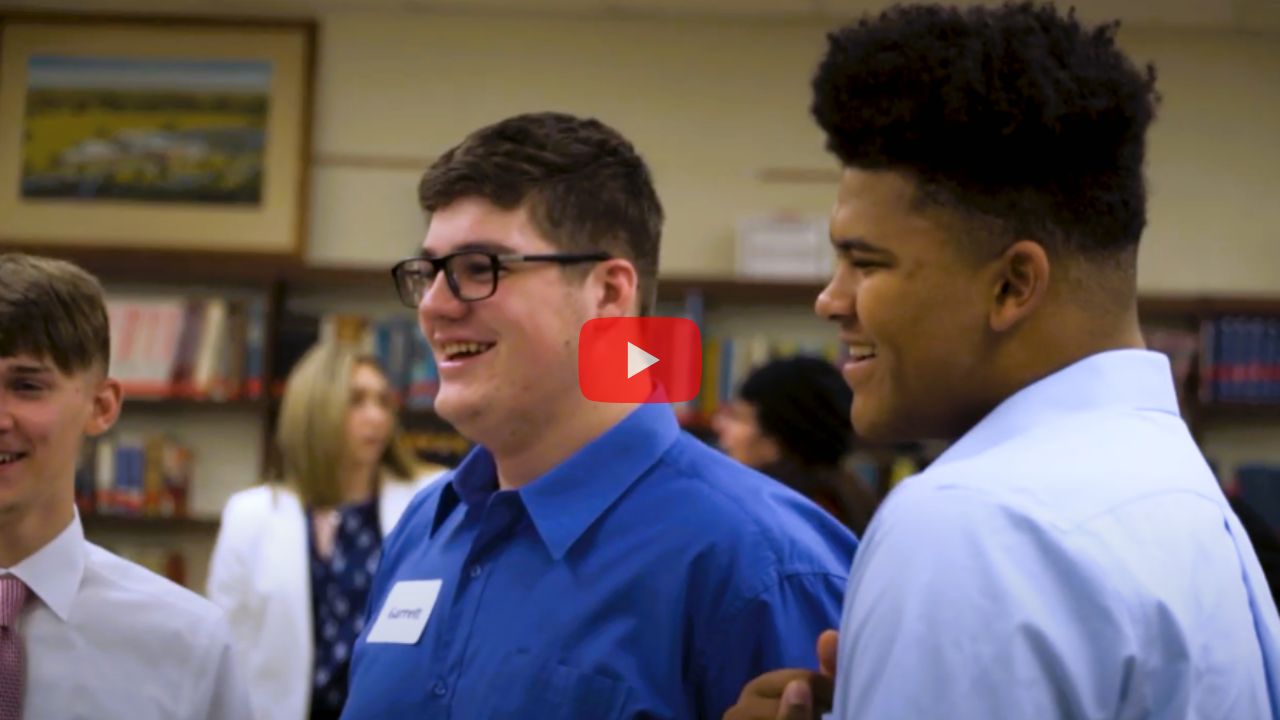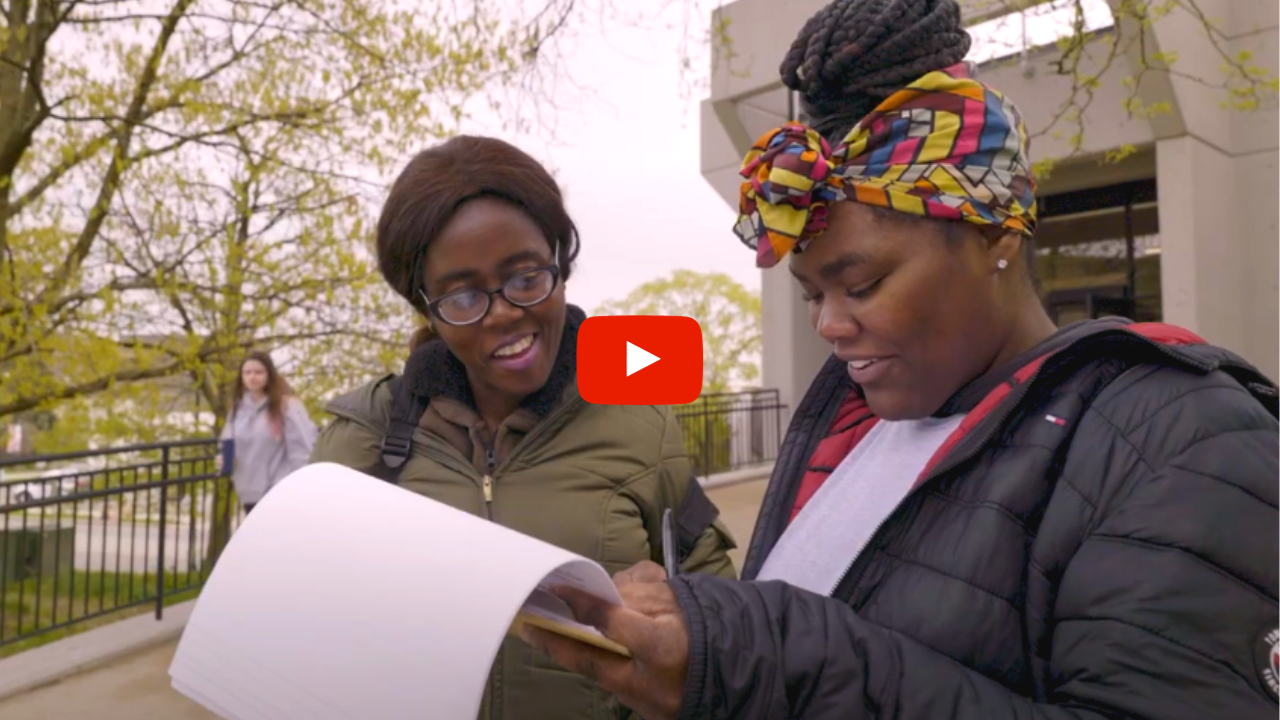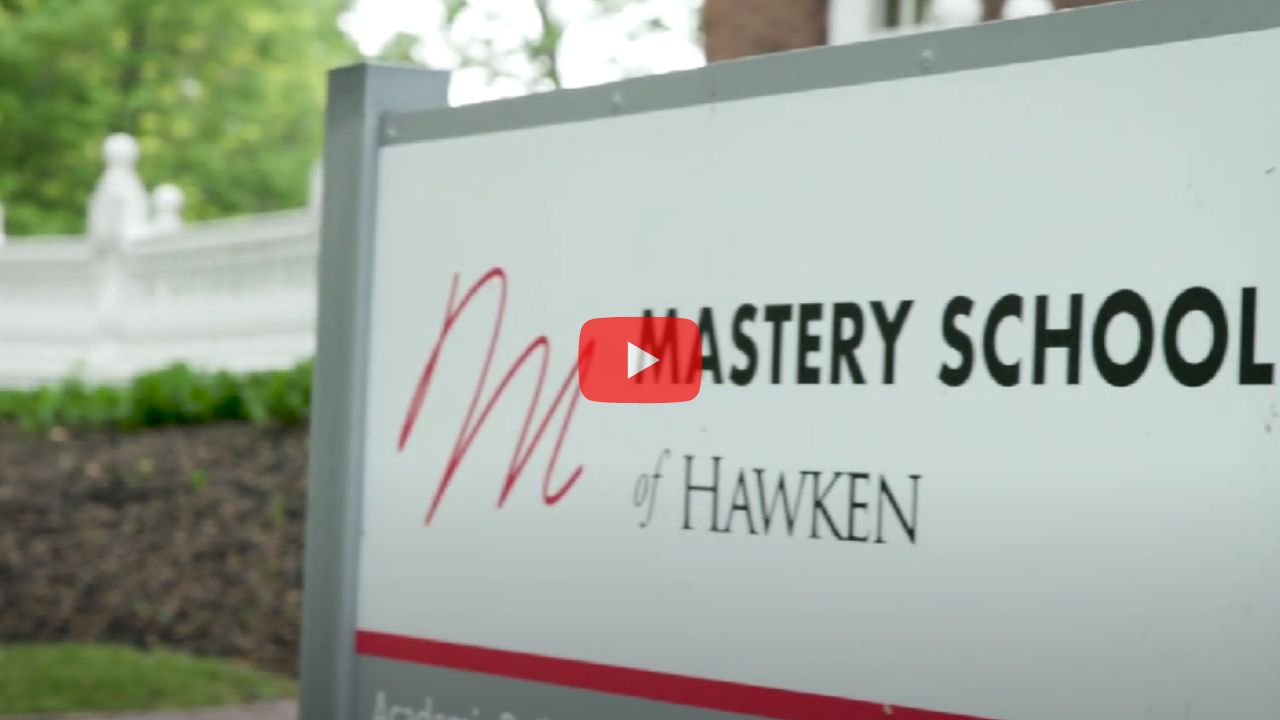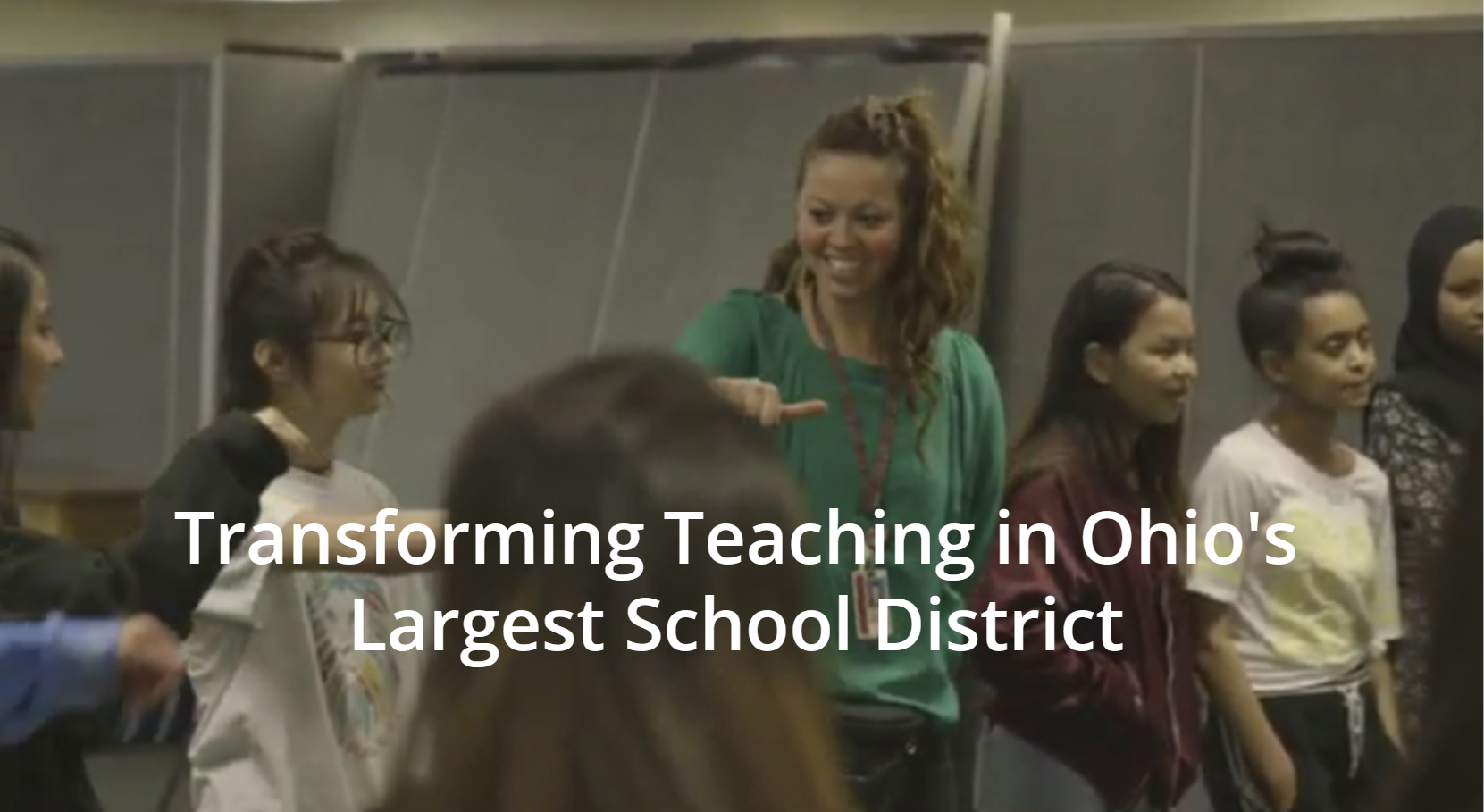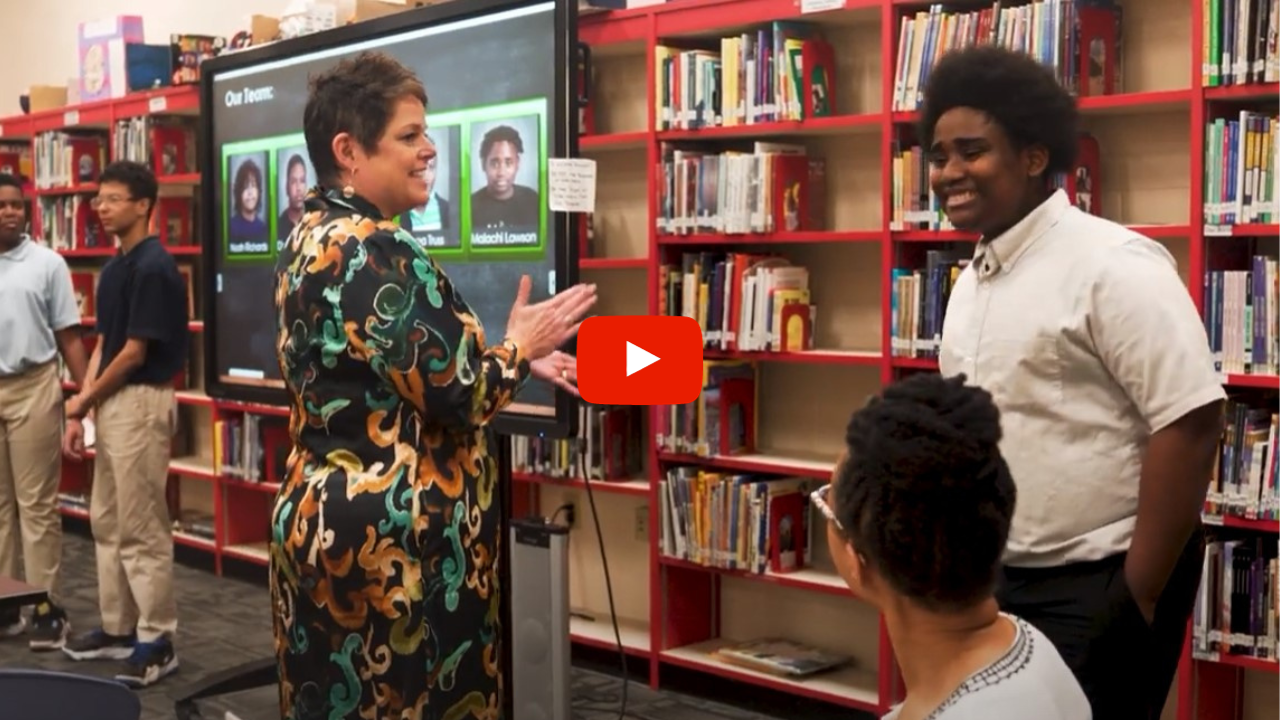In this episode, we talk about the final look at a semester course and how important the reflection on the entire experience is to the learning of the students.
Alison: Here we are Doris.
Doris: I know.
Alison: We just finished up the final presentations for the semester this past week.
Doris: Yeah.
Alison: What were your thoughts?
Doris: Well I think I’m reminded every time, I was reminded this time of the same thing I’m reminded every time, which is even though the whole idea of giving high school students an assignment to actually come up with a real business model in…
Alison: Four weeks.
Doris: From basically nothing to something you could…in four weeks is crazy. I’m reminded again about why the process is so powerful and having the…having real investors that they’re presenting to. Having the deadline where that moment is going to come whether they’re ready or not ready and they’re going to be presenting to people who do this day in day out, with people out in the real world, adults, it’s really important. Think about the difference. If you had everything the same as what we had them do, but they were just presenting to us and their parents.
Think about…you can’t even describe it, and the same happens with the business problems. They’re presenting to the actual CEO and founder and team. This time they’re presenting to real investors. Working into, whether you’re teaching an entrepreneurship class or you decide in your science class to have a unit. We have many we’ve worked with who do just a unit to start, where they find a real problem for the students to work on that. Presenting their solution to an authentic audience is so powerful. Didn’t you feel that?
Alison: It’s a great point you’re making because even into about the third week, where we really shifted from, okay you’ve defined the problems now, we’re moving into this phase of really coming up with a meaningful solution and thinking through each of these aspects. Whether it’s the revenue model, the channels you’re going through, how you’re going to reach the customers, and that there was a different fire behind their kind of work ethic.
Knowing that they had to present to real investors you see real entrepreneurs day in day out and they weren’t going to go easy on them because they were high school students. And that they needed to come up with something real, and thought through, researched, all of these things that would position them well to get up in front of the investor and show them, okay, here’s my go to market strategy. Here’s what we thought through in terms of our revenue streams, and here’s what the product prototype would look like. I think it pushed them to a different level knowing they had to present to these investors.
Doris: Well and every single teacher, every single educator that we’ve trained who’s done a pilot, every single one of them have come back out the other side and talked about how important it was to have that performance at the end with real people, not just the teacher. Like it doesn’t matter whether it’s a middle school science course or last night one of our English teachers Mr. Cleminshaw, tried a unit in his AP English class for the first time. Where students presented to a panel of judges including me, and I’m sure he lied about who I was so that the kids would think I was…but no, I’m kidding, but they had a presentation to a panel of judges, Mr. Looney.
You could tell just like with our class, you can tell that for those students, presenting to someone who was taking what they were presenting seriously put them in a completely different place in terms of the work they did. Instead of just, here’s my teacher, she or he said I have to do this and it’s a kind of transaction between just the two of you, it changes everything.
Alison: It’s really powerful throughout the whole semester that moment. The first business they work on, where they realize an adult who’s successfully working in the real world and has started up their own business, is taking their 16 or 17 year old opinion seriously, recognizing that it was more than opinion. That they had to actually do research and show evidence based solutions, and that in fact when they did their homework so to speak, that people really valued what they had to say and that these entrepreneurs, often whom we’ve chosen to work with are beyond grateful for the support that these students bring forward, and that they take interest in the work.
It moves them to a different place entirely. Where these students realize, wow, at this young age I am able to contribute something that impacts an adult and possibly their business, and if it’s a social venture, the beneficiaries of their business. And that’s powerful.
Doris: The people, what you’re saying is so right on. We use mentors in this last part of the class. Having people from the real world engaged with the students in the subject matter they’re working on, makes it serious, makes it real. All our students say it and interestingly enough, what so many of the teachers we’ve worked with from other schools. The two things that some of them are nervous about when we’re training them. One, the two things they’re almost…some of them are most nervous about. One is, I don’t know anybody. School, a rural school or whatever.
Alison: In rural America, yeah.
Doris: Or I just, I’ve been a teacher, I don’t know and we have that conversation with them about, okay, so let’s talk about whether you could get a parent of one of your students who has a job somewhere to come in for one hour. Or Rachel Mullen who’s our Spanish teacher, who got a woman she knows who works for an ad agency. She’s teaching Spanish, so she was using a real problem for the students in a Spanish class. She got somebody in an ad agency who markets to Latin Americans and to Hispanics. She got this woman to agree to do a couple Skypes with the class.
Alison: Interesting.
Doris: What you just said is so true, that what teachers, if you haven’t asked don’t realize is, the people are so excited to work with high school kids or middle school kids, to contribute a little time to these guys. They’re excited. We never have a problem finding people to work with our students, but neither do any of the teachers we’ve worked with.
Alison: We’re clear up front as well, hey, these aren’t free leavers that are just going to consult for you for free. The purpose in working with us shouldn’t be that you want all these ideas from a bunch of young people. You should really do this because you believe in this style of learning and that matters more than anything. They say yes, because they believe in the learning. On the back end of the experience, they’re all shocked in fact that they’ve got something out of it.
Doris: That they got some great ideas. Yeah, yeah.
Alison: Yeah, but we clarify that up front because it’s important to help everyone understand their involvement in this from a community perspective, right?
Doris: Right.
Alison: And supporting the work of the next generation going out there into the world, needs to have some more reality brought into the classroom.
Doris: And it’s important as a teacher to set all these things up well. That’s the most important key to success. If you’re going to have students present to some people, you have to structure it and set it up and prep the people coming in so that it matches what you’re trying to…your objectives for the students. Everybody’s different, some people do it very well. One of the things that we never really promote is that there be winners or that it’s a competitive thing.
Alison: Oh, for the students, yeah.
Doris: For the student teams who are presenting. So that it’s really…
Alison: Actually I don’t know if you were here one day when one of the students this past week raised their hand and we were talking about the investor panel and what to expect and how they would present. And one of them said, “So when will they announce which one of us won? How do they do the winners?”
Doris: Oh, that’s funny.
Alison: And we said that’s not how this goes. What the investors really talk through and will give individual feedback to each of your teams is about if this business model actually has legs to move forward. And I think that’s an important point to note, because it’s not to say, okay, here’s how much we’d invest to get you into a series A funding. It’s about, all right, here’s how we perceive what you’re doing to be feasible in the marketplace and that we would potentially invest you to go into sort of feasibility study.
Doris: They give real feedback and so think about when…so when here at Hawken, our humanities department chair wanted to create a lab course, because students in the humanities program weren’t developing the kind of critical thinking and writing skills and really struggling with some of it. They did a…we had the teaching team do a pilot using these same methods. The pilot was teaching Chinese history for three weeks. They set up a deadline with an authentic audience, that student teams presented to. Where the students chose a contemporary Chinese problem that they cared to solve, but the expectations, the requirements for that solution were that the students had to have the depth and the context in Chinese history that impacted.
I’m not wording it well, but they had to have the socio economic, cultural, historical depth to support their solutions. So these teachers guided the Chinese history learning, but the fact that the students were presenting to an audience that they thought were authentic, would really know about Chinese history, and would be really listening for what the student…that made all the difference in terms of the depth the students went to. So it doesn’t matter whether it’s entrepreneurship or ancient Chinese history or science or whatever it is, having someone involved in the solution that the students prepare, having people they can talk to along the way, interview, do research with, who are out in the real world.
This is…it brings something into the learning for these students, that makes all of it relevant and meaningful in a way that a closed classroom with teacher and student only, just can’t do.
Alison: And it was actually interesting because as that day was closing out after the presentations, one of the students was talking to their mentor, I overheard her saying, “I thought this would be more of a wow moment. I thought this was going to be like the culminating experience and it just feels like it’s felt in these other day…any of the other presentations.”
Doris: Which is the same. It’s a continuation, yeah.
Alison: And the mentor said, “You know, you’ve just been in this day to day, taking a step back and reflecting, where you even were at the beginning of your challenge. The problem at that point you thought you were solving, to now what you actually presented on today that was really validated at the root of a meaningful problem related to girls, and their confidence levels and it wasn’t actually related to the WNBA really all.” But it was interesting how he helped position it for her, that in fact there had been a lot of growth in this final project, but what I appreciated was, just the past few days now we’ve had them finalize their capstones and talking about the reflection that now has gone on over the entire course experience is helping…was I think more of the wow moment. Yesterday I left class and was really…
Doris: You mean for the students that’s when they had the wow moment when they were putting their portfolios together, their capstone portfolios?
Alison: Exactly.
Doris: Happens every time, yeah.
Alison: It was amazing and I’d like to talk through that a little more because I know you’ve seen this semester after semester, and I know you really reinforce the power of reflection, but to have this capstone piece at the end, where they are thinking through, where did I start at day one?
Doris: One of the things that happens as a teacher, when you first start very intentionally, that learn some stuff, apply it and reflect on it. When you very intentionally follow that loop all the way around with every single part of your class and your teaching, is you start to discover how vitally important the reflection part is to the learning. Like it’s crazy and we’ve worked with so many teachers who once they…I always say, just give them the playbook, let them do a pilot. Once they do, they’ll make it their own. They’ll know what works, what doesn’t and go to town after that. The reflection in every part of it is massive.
And the capstone is like you said, it’s the reflection on the whole class. So we build reflection in at every part of the class and then at the end, we have them reflect on the whole thing. What that does is it gets them to process what they learned, how they grew, what mattered most and matters most, and it plants that in their heads. And then when you talk to them six months later, a year later, two years later, that planting that happens during the capstone continues to grow over time. We’ve seen this, that it is the further out our students get, the better they realize what they got out of it.
Alison: It’s true. I mean whether they go off to college and are in different student groups, if they’re in Greek life, in their classrooms, trying to get internships in the summer, eventually getting jobs after college. At each of those points, they’re reflecting back on, wow. I know you sent an email recently of a student who during the course…
Doris: Oh yeah, she resisted it the whole way, she thought it was stupid. She didn’t think it was stupid, she hated the lack of…she said, “I’m really good at following the instructions. If you tell me what to do, I’ll do it and I’ll get my A.” And she really struggled with having to be creative about what to do next. Never really got it actually until she…
Alison: And then yeah…until she was out in an internship or is she working with that company now? I’m not sure, but…
Doris: Yeah. What happened was that I told…we had one of those feedback sessions at the end and I said, “Let me tell you the growth I’ve seen and I think you’re going to someday, maybe it’ll be 10 years from now, you’re going to understand why that was really so important for you. To get the confidence, to think about things without the recipe, and carve your own path, and that even thinking like that is massive growth for you.” And she wrote an email. Yeah, she wrote an email a year out saying…no, it wasn’t a year out because she graduated last year, six months out saying, “I’m writing to let you know that I now realize and I didn’t have to wait 10 years. I totally get why that was a massively important class for me, because I have a job and they’re giving me stuff to do with absolutely no instructions, and I’m rocking it, and it’s because of that.”
Alison: That’s exciting. I mean it’s exciting to work with these students day to day and for us to see the growth that they’ve gone through, but for them moving through this capstone process itself and starting to get a glimpse of how powerful this actually was for them, that we were saying, peaceful fruits in this specific semester seems like years ago, but in fact it was only a couple of months.
Doris: Right, the first business, yeah.
Alison: But the reason it feels so distant is because they were different people back then. To see that course of transformation in oneself over the few months I think is powerful, and I look forward to hopefully emails in the future from other students who like you say, the further out they get, the more they recognize how valuable this might be to their life.
Doris: Yeah, and this generation, this generation and the ones to come, they want to work on things that are real, and they want to work on things that matter. Whether it’s a science class or a humanities class or whatever it is, having an experience in the class, in school, where they get to work on something real that they care about, that connects them to the learning, the work, the knowledge, whatever it is and realizing their own abilities to learn. That’s what’s so empowering and even if you just do one unit at the beginning of all your class that’s mostly traditional.
If you do something where the students go very deep and hard into solving problems that are real and discovering the crazy exciting challenge that comes from having to do something under a deadline, that has no recipe with a bunch of other…like that is an experience that all these kids come out of having learned something powerful about themselves, whether they realize it at the time or not.
Alison: That’s exciting work and I look forward to next semester with our next cohort we have coming through. It’s wild that this semester has already come to a close. I feel like it went so fast.
Doris: Yeah, it did.
Alison: But we’ll be taking a break here for the holidays, and we will be back with the podcast in early 2017. Yeah.
Doris: Sometime in 2017. Yeah, all right. Well, have a great Thanksgiving.
Alison: Thanks, yeah. Same to you.


